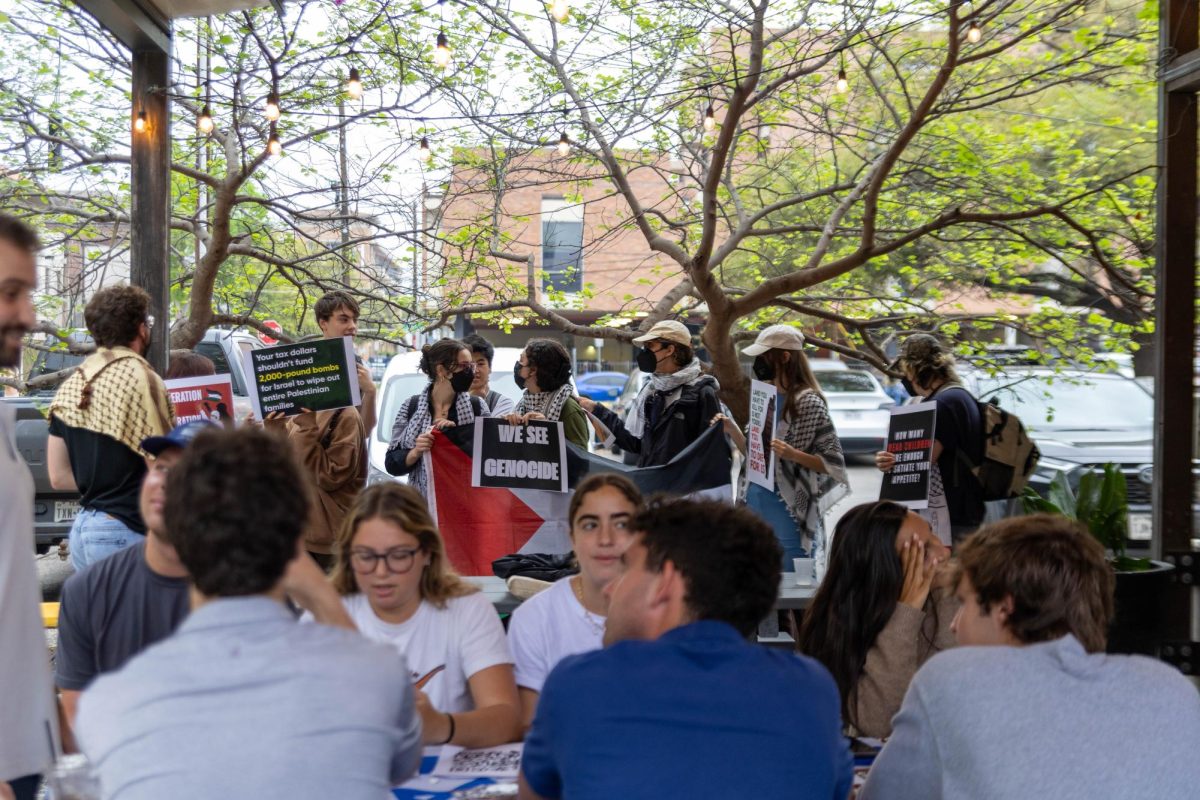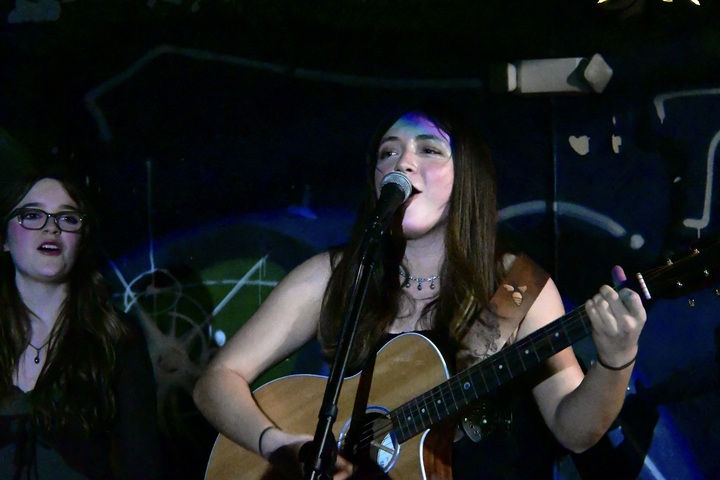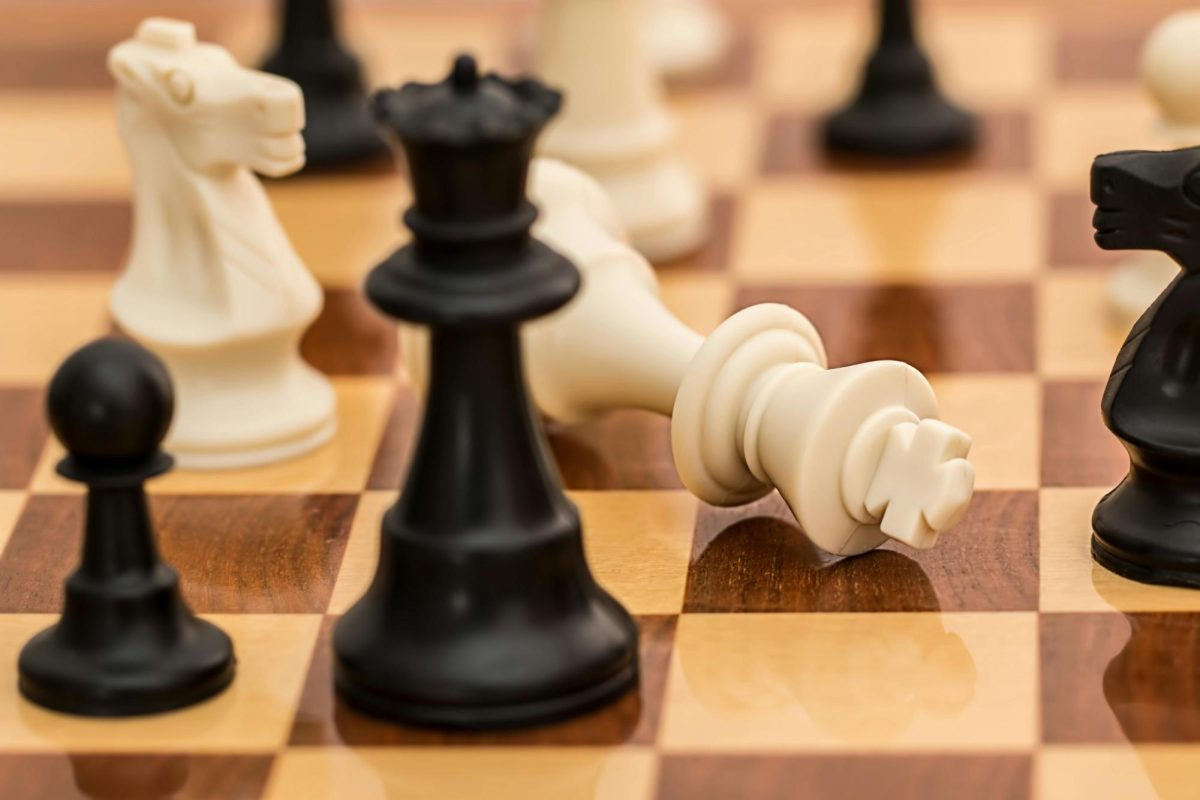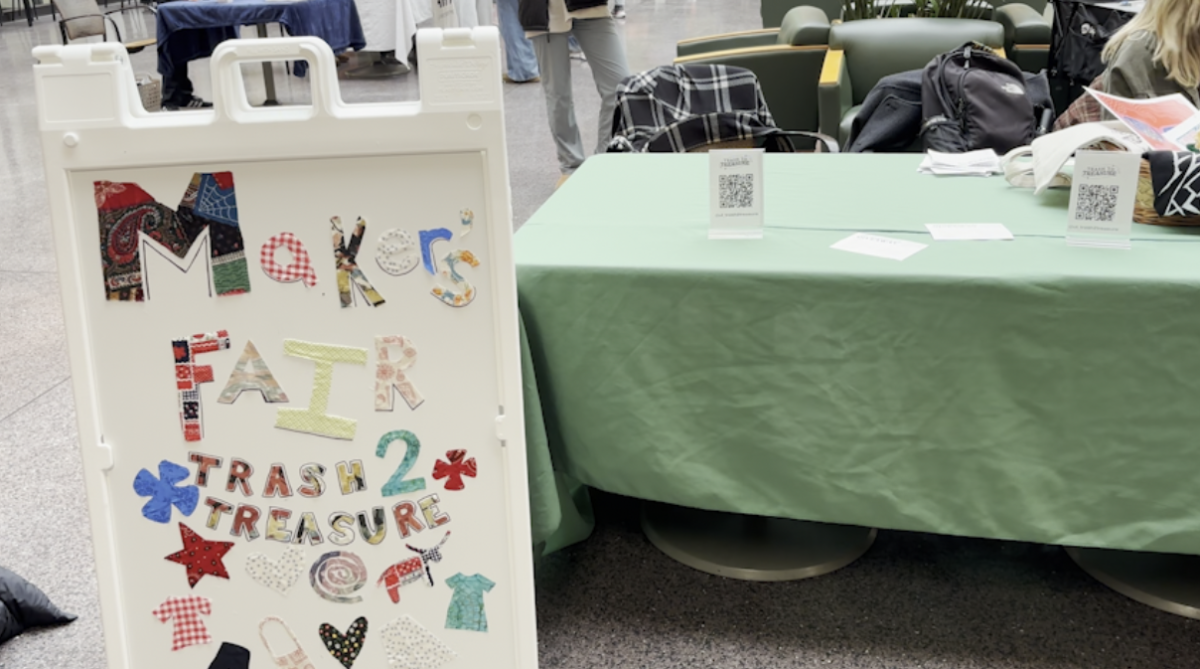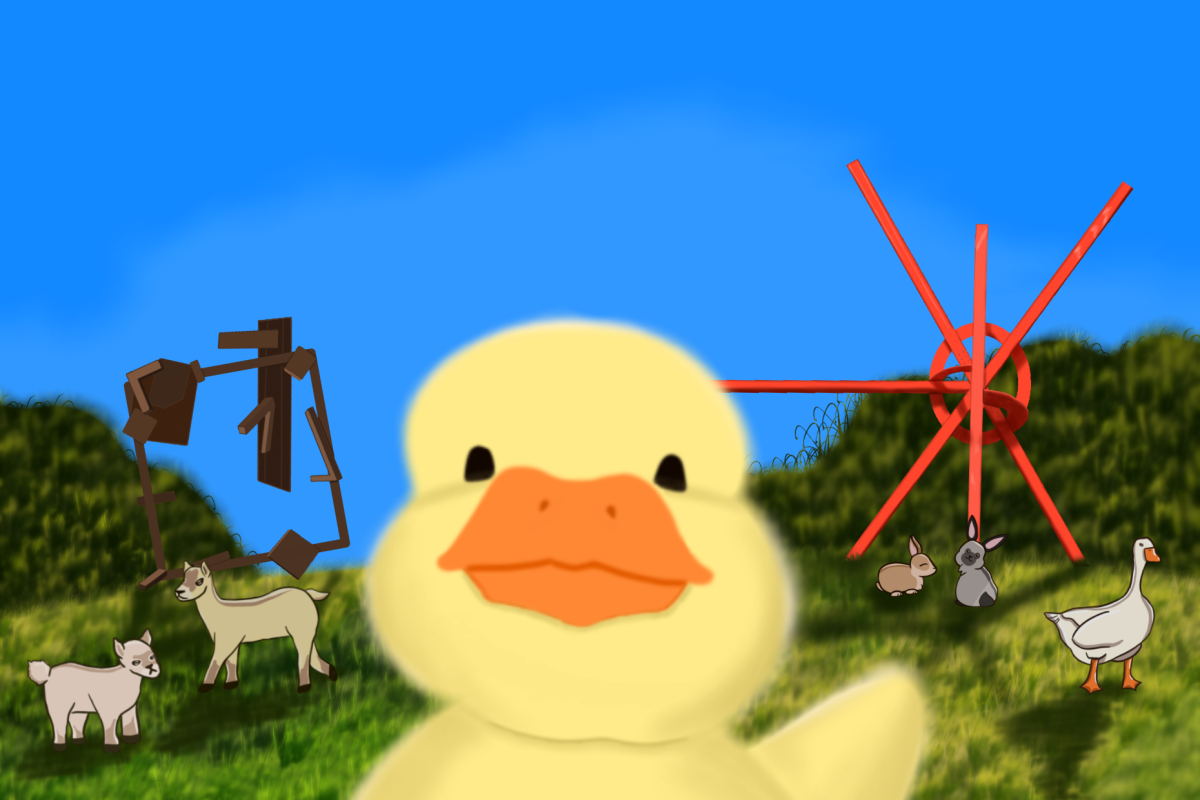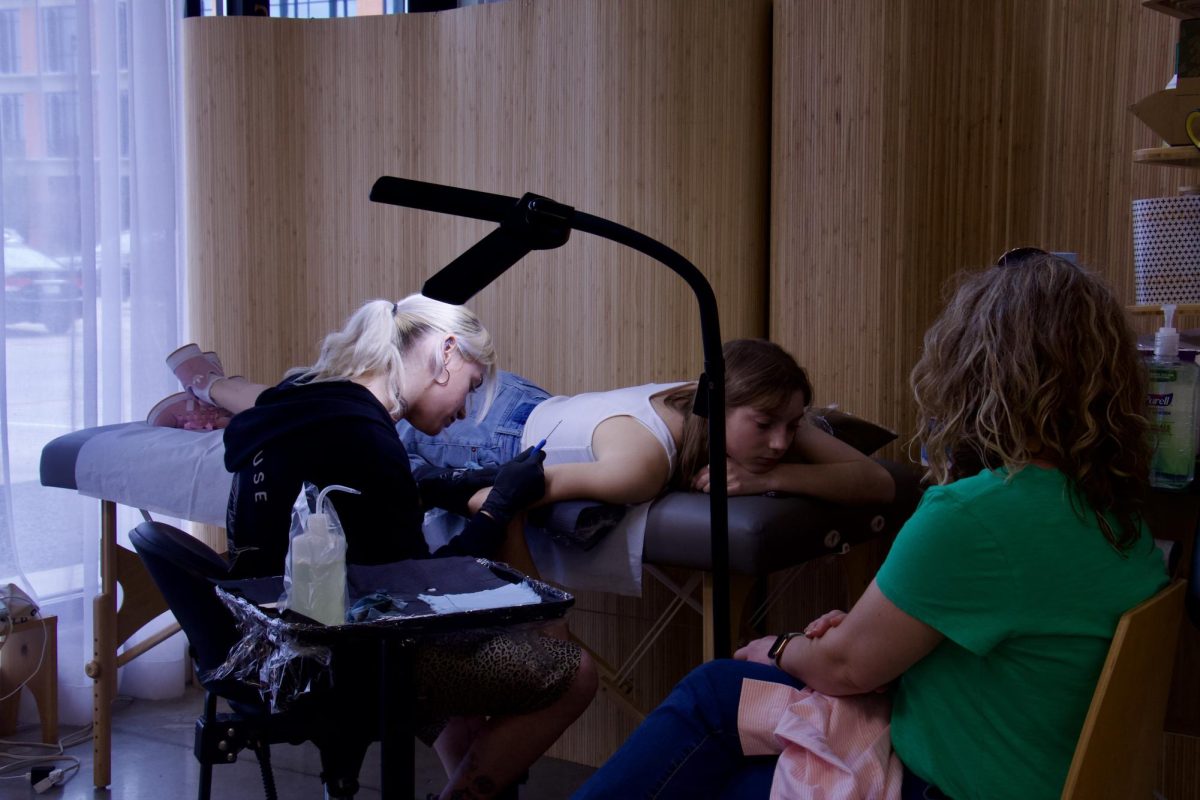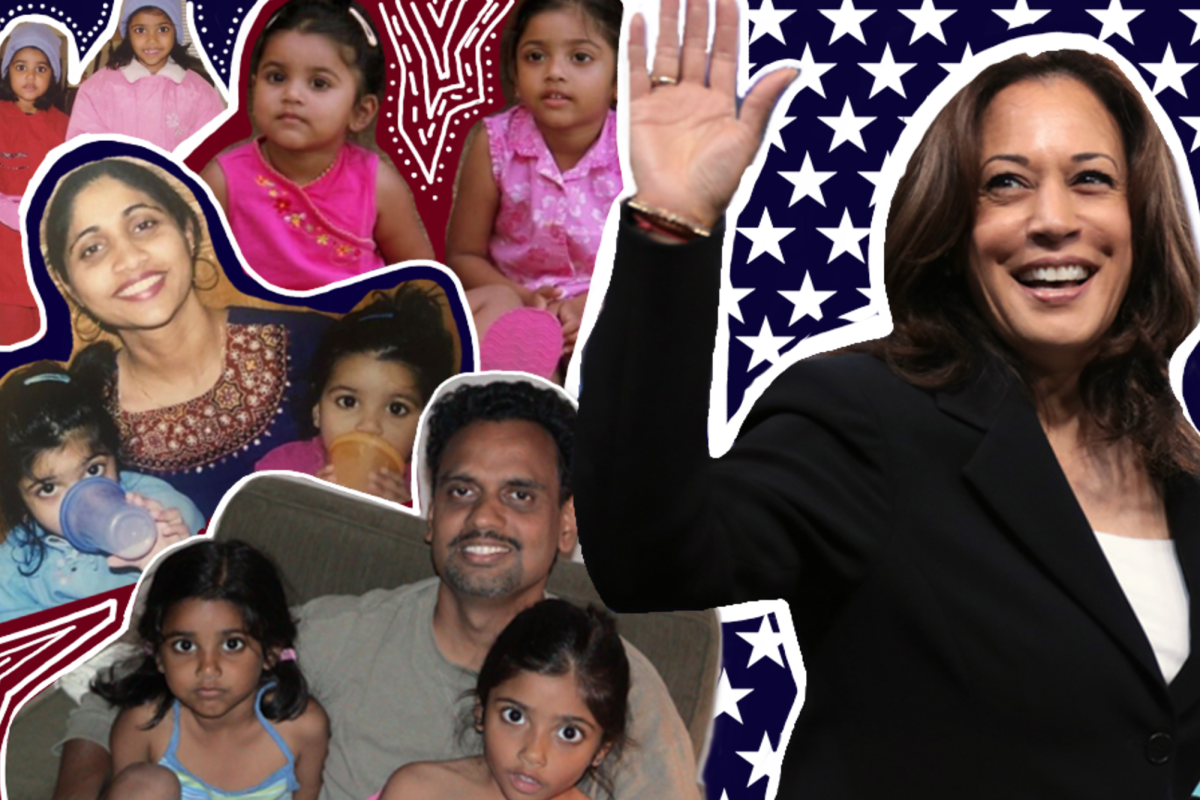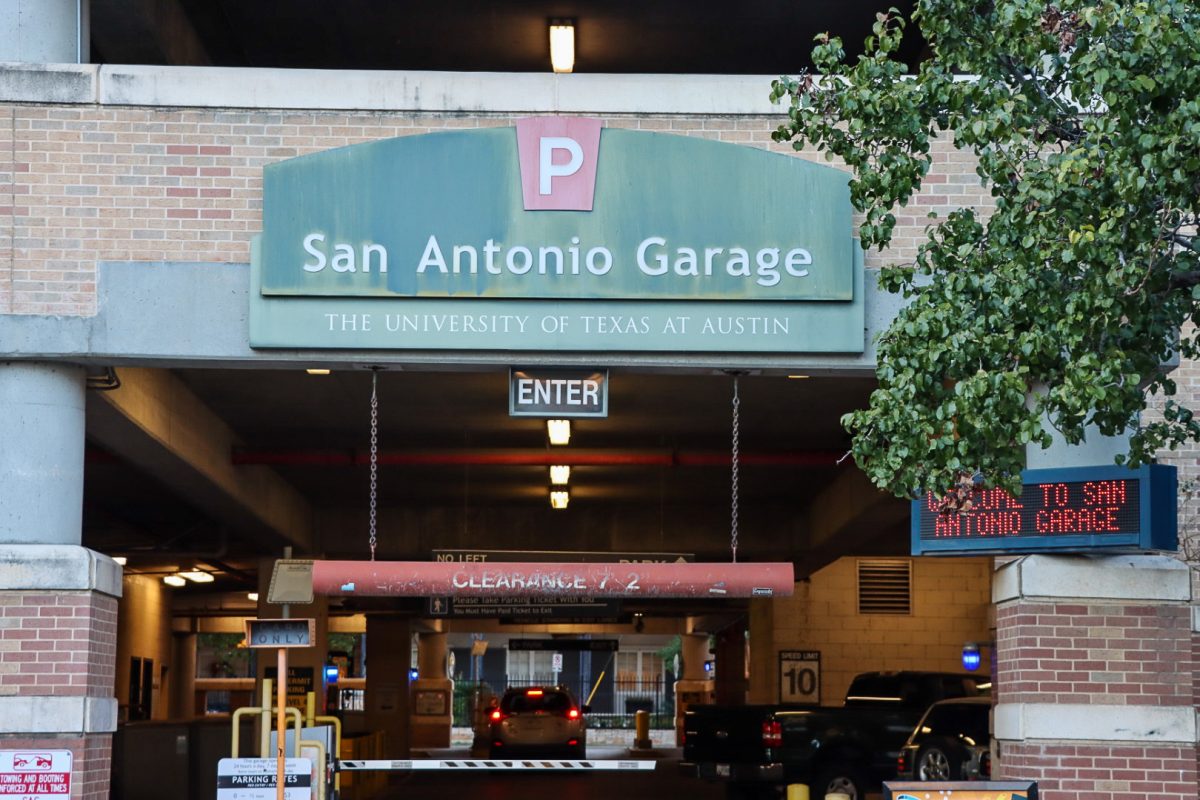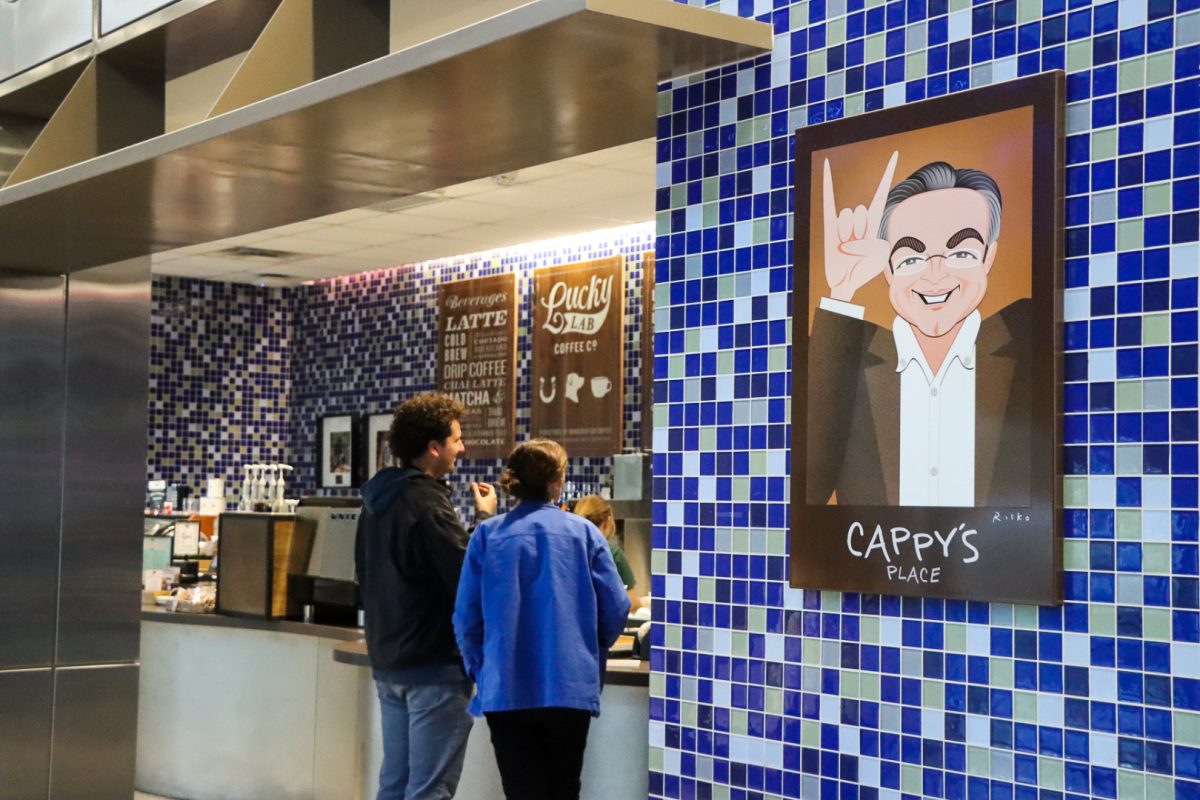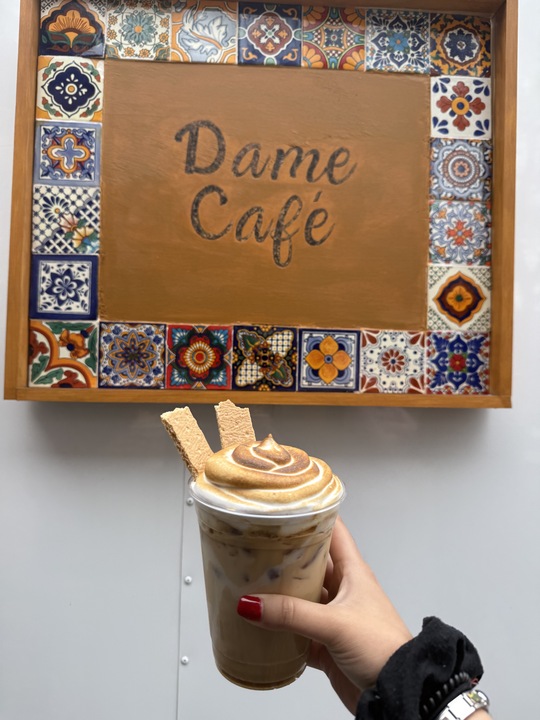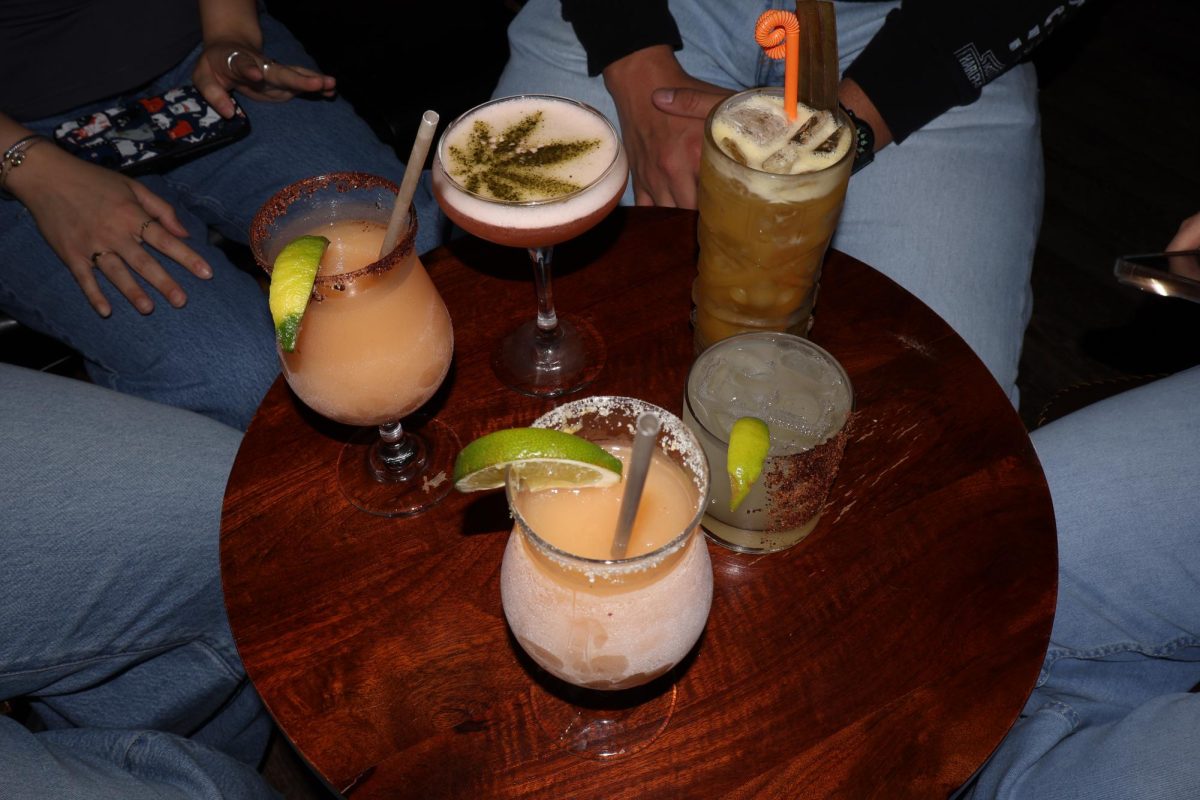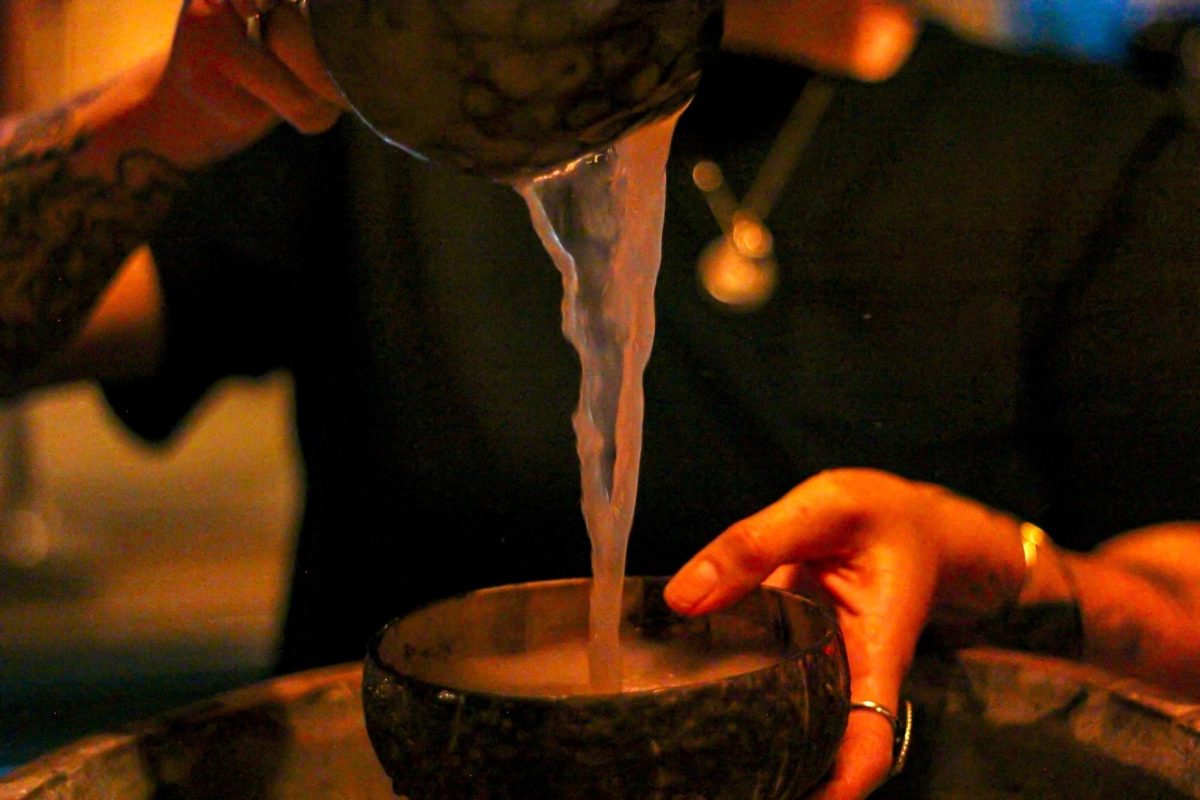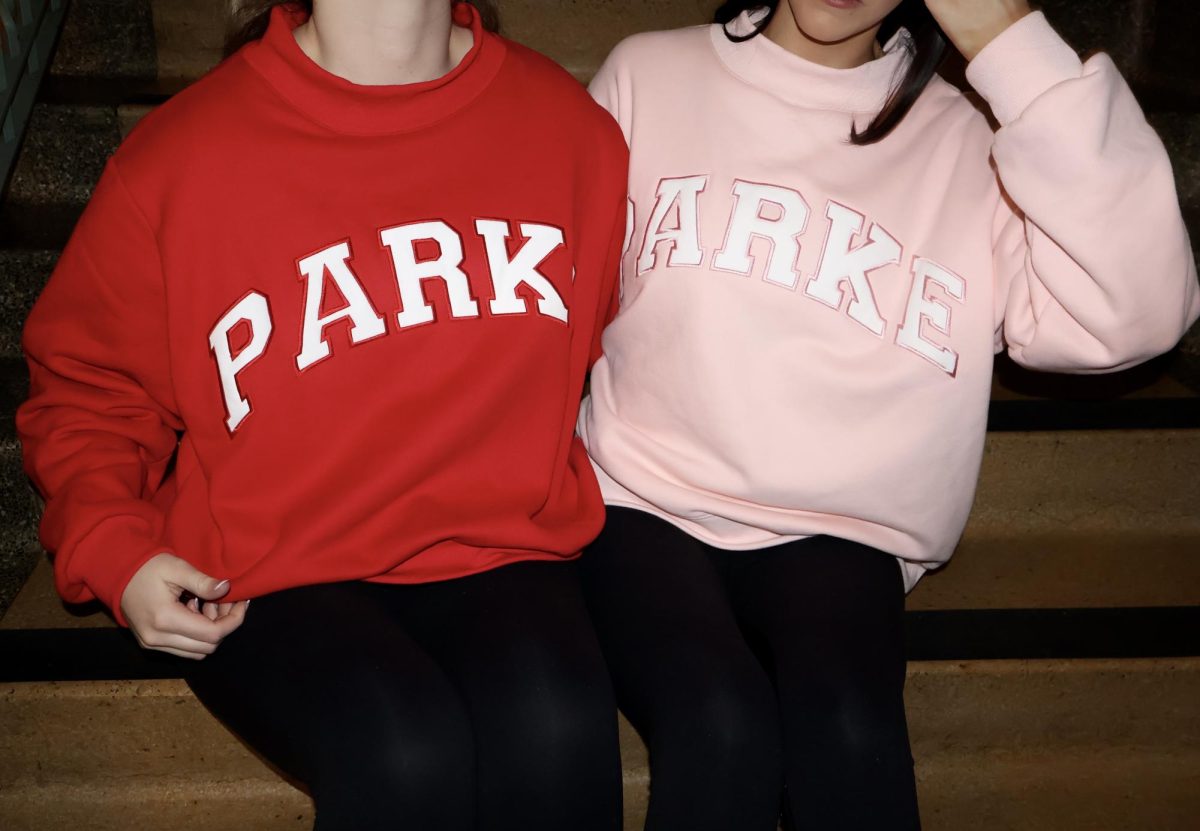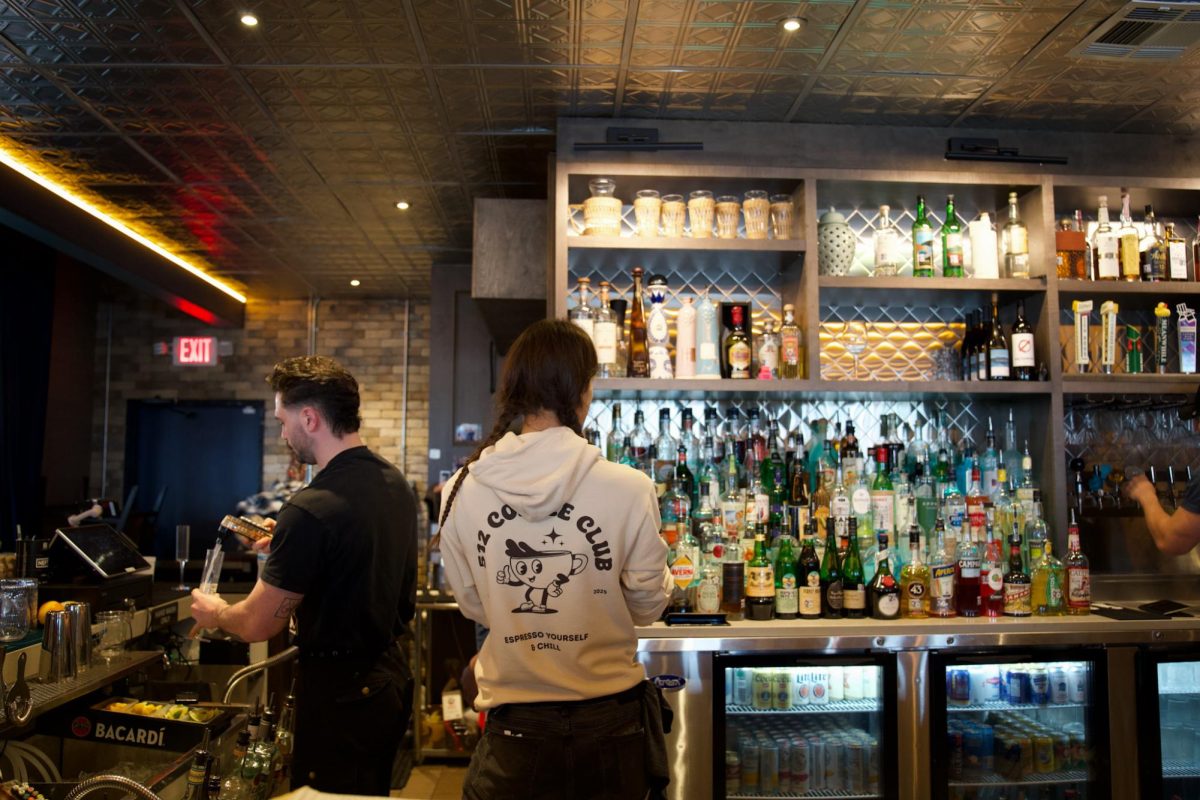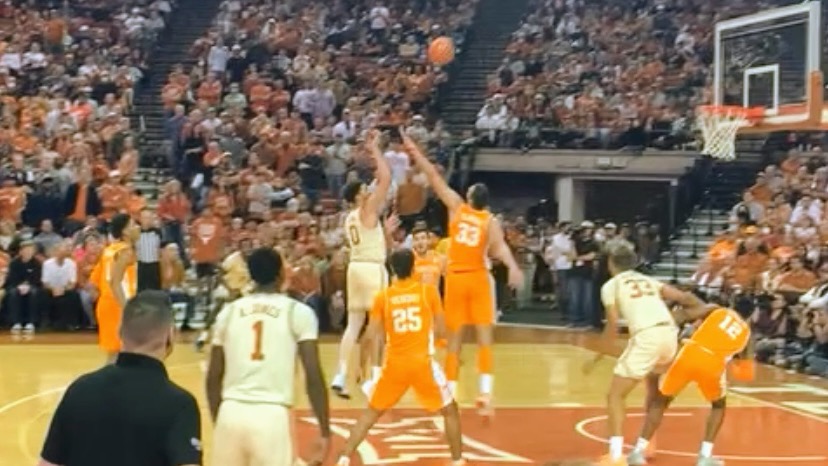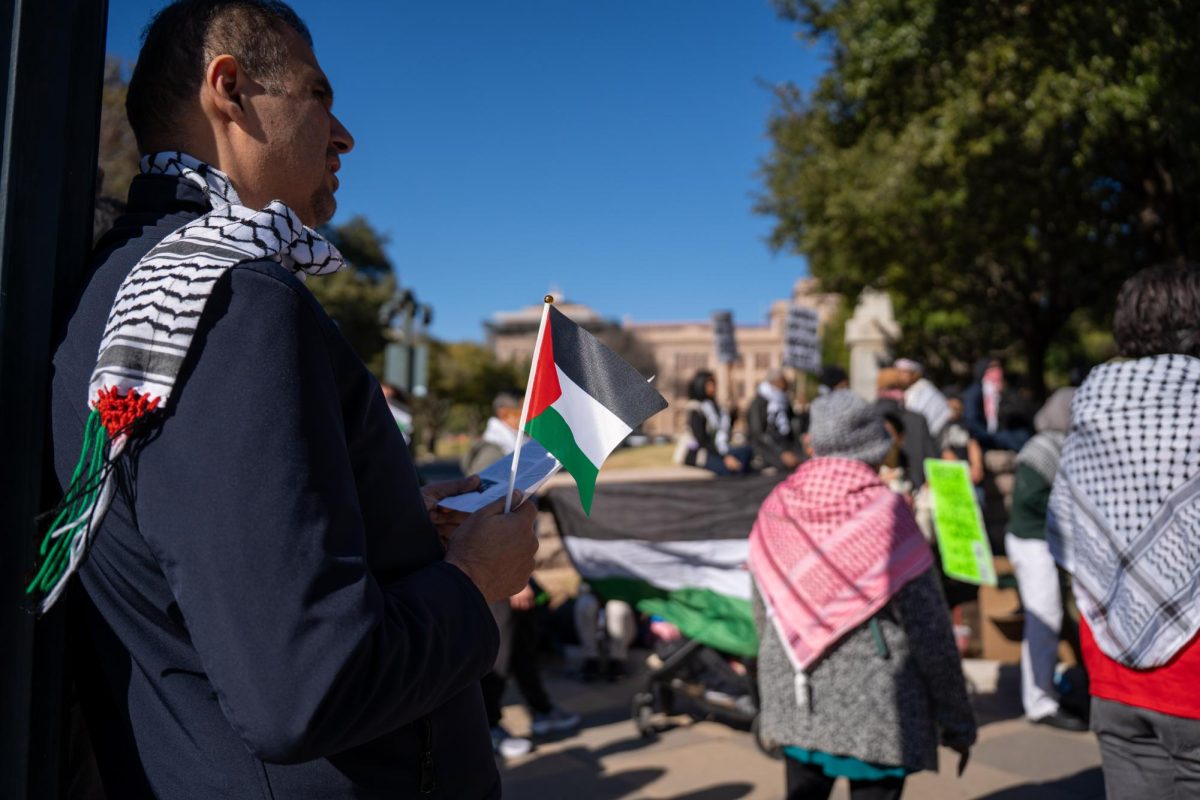Updated April 2, 2025 at 1:47 p.m.
Palestine Solidarity Committee demonstrators gathered at the Lucky Lab on Guadalupe Street on Wednesday morning to protest a Longhorn Students for Israel event called “Lucky Lab Tab” with David A., drone pilot and former head of international press of the Israeli Defense Force.
The PSC organized this impromptu demonstration, which started at 10 a.m. The group previously made separate plans to protest the Israel Block Party on campus at noon.
At 10:10 a.m, around 10 PSC demonstrators arrived at Lucky Lab with signs and Palestinian flags. Event attendees from the Longhorn Students for Israel, or LSFI, offered coffee to the demonstrators if they were willing to speak with them. The PSC demonstrators refused.
Eati, an attendee of the LSFI event who preferred to be identified by their first name, said the pro-Israel group is open to discussing opposing viewpoints.
“ We’re very open to dialogue and when protestors come over and yell, ‘baby killers,’ It doesn’t promote dialogue,” Eati said. “It doesn’t promote democracy. It doesn’t promote any sort of discourse that will last, (or) safety or freedom for either of us.”
The LSFI attendees handed out stickers to bystanders waiting in line that said, “FCK HAMAS,” and offered to put orders on LSFI’s tab.
At 10:20 a.m, one of the PSC demonstrators gave a brief speech denouncing David A.’s involvement in the ongoing war in Gaza that has killed more than 50,000 Palestinians. The crowd then began to chant in front of the building.
“Occupation is a crime. Genocide is a crime. Ethnic cleansing is a crime,” the crowd chanted.
About five minutes later, a Lucky Lab employee told the demonstrators they would call the police since they “did not support political messages” at the establishment. An anonymous member of the PSC demonstration said this was hypocritical as LSFI was allowed to stay at Lucky Lab to finish their event.
“ (LSFI) claims to be a non-political org,” the protestor said. “Except, if you go on their Instagram, they love to say things like, ‘F*ck Hamas,’ and (they invite) IDF members. I mean, that alone within itself is a political move.”
The same anonymous demonstrator shared that showing up to an event like this to protest those involved in the conflict in Gaza was crucial in the fight for a free Palestine.
“ I didn’t have class, but I was like, ‘You know what, I’m gonna wake up early. I’m gonna come for this. This will fuel me. This will motivate me,’” the protestor said. “We can’t treat this as a trend, we can’t let the movement die down. We will continue fighting for our rights until Palestine is liberated.”
The demonstrators moved to the corner of 25th Street and Guadalupe after the Lucky Lab employee approached them.
At 10:35 a.m., a police vehicle drove past the PSC demonstrators. The protesters then dispersed.
Palestine Solidarity Committee Hosts Second Event in Palestine Resistance Week
The group held a roundtable discussion about the role of collective action in their cause.
Hasina Shah, Editor-in-Chief
Updated April 2, 2025 at 11:59 a.m.
The Palestine Solidarity Committee hosted its second day of action in the Palestine Resistance Week at the Hoft Institute Tuesday evening. The roundtable event aimed to create a collective dialogue about ways to resist efforts to repress pro-Palestinian activism on campus and beyond.
With student activists being targeted and detained across the country for using their First Amendment rights to free speech, the event organizers emphasized the importance of community and coming together to discuss ways the movement can grow and enact change.
“What they’re trying to do right now is instill fear into all students, into the movement,” said Ammer Qaddumi, one of the event leaders. “That’s why it’s so important to recognize us as a collective and not just us as individuals, because together, we’re stronger.”
The roughly 30 event attendees were split into small groups to talk through a list of questions provided by PSC. As the groups made their way through the list, event leaders joined in to add their own thoughts.
Hadi, UT student and PSC organizer who preferred to be identified by his first name, said that, when faced with political pushback, a movement has two ways it can respond: falling back or standing tall.
“It’s a thing of principle,” Hadi said. “When faced with political repression, a group has two options—to stand down and let the cause wither away, or to stand up in the face of threats for the cause because (they) believe it is truly just.”
To effectively create change, Hadi said those involved in liberation movements need to not only be courageous, but also strategic in their demonstration efforts. He shared that using discernment to know when to escalate and de-escalate a movement’s approach is crucial to successful organizing.
“It’s not about being brash and illogical,” Hadi said. “It’s about being strategic. It’s about looking at situations and assessing them–‘When is it smart to push against this political repression?’ ‘When is it smart to do a more passive approach and wait until the time where (pushback) is more appropriate?’”
The attendees came back together after about 40 minutes to share their thoughts and takeaways as a larger group.
Adam, a UT student and PSC member who attended the event who preferred to be identified by his first name, said it was important to remember that, though free speech and issues of repression are important and present concerns, the real reason PSC continues to show up is to fight for the liberation of Palestine.
“At the end of the day, we’re here for Palestinian people,” Adam said. “We’re not here because we might get arrested, or we’re worried about our free speech. These are symptoms of the problem we’re trying to address. The real problem is the crime of genocide that is being waged against (Palestinians) every single day.”
Palestine Solidarity Committee Begins Week of Resistance with Educational Film Screening
By Lillian Vest, Managing Editor
April 1, 2025
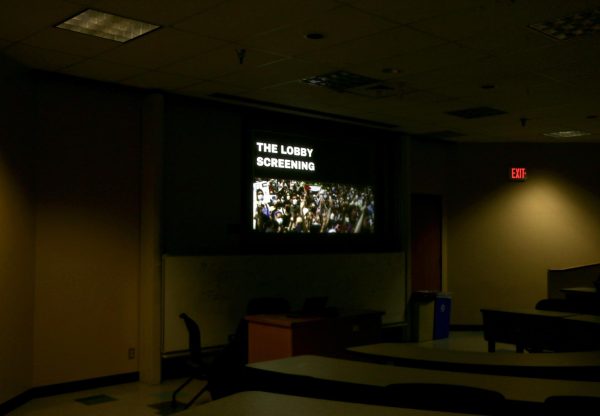
The Palestine Solidarity Committee kicked off their Palestine Resistance Week on Monday evening with a screening of the documentary series “The Lobby” followed by a discussion. About 10 people attended the event in the University Teaching Center in support of the movement.
This event comes over 500 days after the initial war in Gaza started on Oct. 7, 2023. This time last year, the PSC held a similar week of action event where police arrested 57 protesters on UT’s campus. In January of this year, Israel and Palestine established a ceasefire deal in Gaza. Israel broke that deal about two weeks ago and on Saturday, Hamas accepted a new proposal from mediators Egypt and Qatar, which Israel did not accept.
Instead, Israel made a counter-proposal with the United States, the third mediator in the conflict. Though no details have been given on the counter-proposal, Benjamin Netanyahu, Israel’s prime minister, has said he will go along with President Donald Trump’s plan to displace Palestinians to Egypt and Jordan. Israel is still launching full-scale military invasions in Gaza. On Monday, Israel sent out evacuation orders, demanding that Palestinians in Rafah, the Gaza Strip’s southernmost city, move to Muwasi on the coast, hinting that Israel’s ground offensive will intensify.
“The Lobby,” produced by news organization Al Jazeera, detailed “an attempt by Israel’s Ministry of Strategic Affairs to use covert influence techniques to undermine international support for the Boycott, Divestment and Sanctions movement,” according to their website.
The series shows how Israel targeted, harassed and tried to silence members of the BDS movement, a Palestinian-run organization that seeks to pressure Israel into providing equal treatment for Palestinians through nonviolent protests. In the series, an undercover journalist, James Kleinfeld, infiltrated several pro-Israel organizations looking to dismantle BDS. Kleinfeld uncovered paid actors at pro-Israel protests and details on the Canary Mission, an anonymous website that shames and intimidates pro-Palestinian activists.
In a time where students are being targeted for standing up and speaking out, the leader of the screening event, who requested to remain anonymous for their safety, said “the main theme of this week is repression, especially toward students.”
During the Trump administration’s crackdown on immigrants these past few months, authorities have targeted and detained many pro-Palestinian students here as legal U.S. citizens and residents. The administration has been revoking their visas and green cards and, in some cases, deporting them.
During the discussion, the leader of the event told attendees that the best way to protect themselves during a time when pro-Palestinian students are being targeted is to plan demonstrations effectively so future generations of protestors have a blueprint to follow.
“The best way to defend ourselves from this repression is to really be organized,” the leader said. “Build support systems for future students to fall back on.”
UT student Tony Nguyen, an attendee of the event, said he believes that showing up for Palestinians is his responsibility, especially since the war has deprived them of luxuries like higher education. He said he views Palestinian’s plight in the conflict as unjust.
“People are straight up dying with our own taxpayer money,” Nguyen said, “the least I can do is take myself out of my own normalcy and put that (message) out there.”
Riddhi, another attendee who preferred to be identified by their first name, said that pro-Palestinian supporters are not giving up on the movement despite the forces and administration against them.
“There are a lot of efforts being done to try to stop pro-Palestinian movements,” Riddhi said. “These people have a lot of money. They have a lot of power and resources and they think that pro-Palestinian people are going to give up. I think the way to go against that is to just show up.”
The organizers ended the event by emphasizing the importance of educating others and advertised the roundtable on Tuesday, the second day of PRW, as another way to learn more about the pro-Palestinian perspective. Lana, a member of PSC who also preferred to be identified by their first name, shared with the group how vital these demonstrations are to the movement.
“Without constantly showing people or educating people about who we are, we are nothing,” Lana said. “Showing up to these education-based events meant to inform the public and give social awareness is very important in order to teach people about what’s going on.”
This story is part of ongoing event coverage and will be updated with new information throughout the week.

